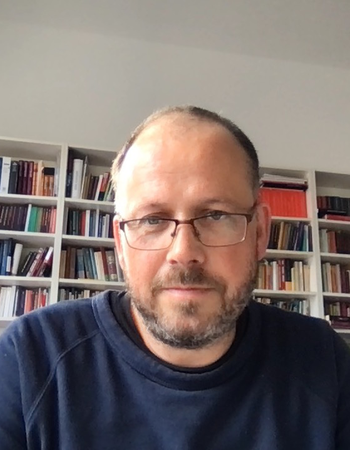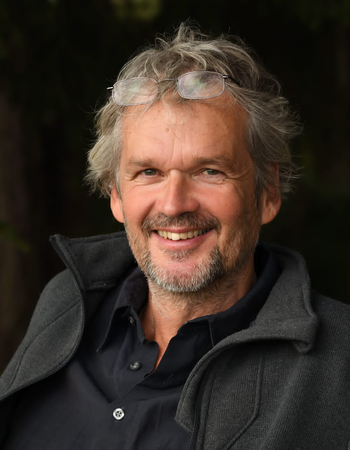Property as a Medium of Habit Formation: On the Political Anthropology of Property in the 19th Century

Outline
To address these questions, we examine discourses in political science, economics, social science, and social policy. Our focus is on the theorization of habit formation and socialization, particularly the development of individual character in relation to the shifting connection between ownership and habit in the realm of consumer goods and associated needs. It seems that property-based individualism has moved away from its original connection to land ownership. Over time, it has become a cross-class model of identity, where property and consumption are seen as keys to freedom and social participation. To put it differently: How did possessive individualism shift from being a privilege of the landed early bourgeoisie, tied to power and exclusivity, to becoming a broader model of social integration in an industrial consumer society?
We propose that, as the socio-ecological transition from an economy of scarcity to an economy of growth progressed—with increasing market integration and the circulation of goods—new infrastructures made the notion of self-civilization plausible beyond mere subsistence and even beyond property ownership. Once landed property ceased to be a prerequisite for cultivating good habits, other goods took its place, though their possession and consumption now served primarily as indicators of virtue. We suggest that consumption, understood as a marker of achievement, operates as a communicative form of self-description, whereby bourgeois virtues—and thus bourgeois participation—are mediated through consumption. If property functions as a medium for shaping habitus and character, the traditional possessive-individualist link between property and individual freedom can persist under new conditions: freedom from natural constraints is redefined as the freedom to consume.
We analyse this transformation as a structural shift in possessive individualism, which takes on a paradoxical form within the liberal entanglement of the individual, private property, and freedom. It endures as a socially integrative (political) model of subject formation, yet it increasingly depends on common goods and state intervention. Meanwhile, real ownership of land and industrial means of production becomes more invisible, losing its central political and semiotic position as the defining marker of private property.
In our study of this economic and socio-historical transformation—central to the history of liberal theory but largely overlooked in the political history of ideas—we adopt two perspectives: the so-called "women's issue" and the self-conception of consumer cooperatives. By developing a gender- and class-specific typology of nineteenth-century possessive individualism, we focus on developments in England, which were formative for other Western European states. Through an ensemble of exemplary figures—from nomads and settlers to workers' wives and bourgeois wives—we construct a heuristic framework for examining how the social integration of groups historically excluded from property rights was realized within the history of knowledge, ideas, and culture. At the same time, we investigate the parameters and social structures that shaped new lines of exclusion within this evolving landscape.
Project Activities
Publications
- Bernhard Kleeberg, Anna Möllers und Dirk Schuck (eds.) (2024): Nomad Properties. Political Anthropologies of Nomadism from the 18th Century until Today, Campus, Frankfurt Main/Chicago, (forth.).
- Schuck, Dirk (2024): “Agriculture, Property and Habits. A Comparison of Adam Smith and James C. Scott", In: Kleeberg et. al. (eds.): Nomad Properties. Political Anthropologies of Nomadism from the 18th Century until Today, Campus, Frankfurt Main/Chicago, (forth.).
- Schuck, D.; Bianchi Mancini, S.; Gibson, H.; Vizent, M. (2024): Relating to Landed Property. Frankfurt am Main und Chicago: Campus.
- Schuck, Dirk (2024): “Letters from an American Farmer: An Eighteenth Century Agrarian Utopia?", In: Bianchi Mancini (eds.) et. al.: Relating to Landed Property, Campus, Ffm/Chicago.
- Schuck, D. (2024): “Liberalism“, in: Cary Nederman, Guillaume Bogiaris (Hrsg): Research Handbook on the History of Political Thought, Elgar: Cheltenham, 134-142. 10.4337/9781800373808.00021
- Schuck, D. & Pecchi, L. (2024): “Cultivating a Capability for Empathy in the Bologna System: The Shortcomings of Economics and the Importance of the Civil”, In: Journal of Philosophy of Education 58 (1), 1–23. 10.1093/jopedu/qhae001
- Schuck, D. (2023): “First-order compassion and second-order compassion One central difference in the social thought of David Hume and Adam Smith regarding the installment of social stability”, in The Adam Smith Review 13, Routledge: London. 10.4324/9781003359395-7
- Schuck, Dirk (2023): “Zur Genese individueller Selbständigkeit bei John Locke", In: D. Sölch, M. E. Bähr (eds.): Geschichte und Gegenwart der Erziehungsphilosophie, Heidelberg u. Berlin: J. B. Metzler (Springer Verlagsgruppe), 10.1007/978-3-662-67561-8_3.
- Möllers, Anna (2023): “The figure of the ‘savage’ and landed property in colonial contexts”, part V of the SFB-Blog series „Verfügung über Dinge: Historische und aktuelle Perspektiven des Eigentums im Wandel”, In: blog of the Collaborative Research Centre “Structural Change of Property”. (published 02.10.2023)
- Mulsow, Martin (2022): Überreichweiten. Perspektiven einer globalen Ideengeschichte. Berlin: Suhrkamp.
- Kleeberg, Bernhard (2020): “Factual Narrative in Economics”, In: M. Fludernik; M.-L. Ryan (eds.): Narrative Factuality. A Handbook. De Gruyter, 379-389.
Lectures
- 27.06.2024, Centre Marc Bloch, HU Berlin, Konsum und Habitus. Zur Genealogie eines Konsumtionsmodells der Freiheit im 19. Jahrhundert (Dirk Schuck).
- 02.05.2024, Tagung „Ästhetik des Eigentums" der Schweizerischen Gesellschaft für Kulturtheorie und Semiotik, Universität Lausanne, Charakterbildung und Eigentum (Dirk Schuck).
- 24.04.2024, Ringvorlesung „10-Minuten-Soziologie", Universität Passau, Besitz als Medium der Gewohnheit. Die Entstehung einer bürgerlichen Eigentumsordnung im 19. Jahrhundert (Dirk Schuck).
- 13.04.2024, Tagung „Prekärer Konsum", Universität Würzburg, Autosuggestion. Zur Frühgeschichte der Werbepsychologie (Bernhard Kleeberg).
- 12.04.2024, Tagung „Prekärer Konsum", Universität Würzburg, Prekärer Konsum als Signalisierung von Geschlechterrollen am Beispiel der Waschfrauen von Glasgow im 18. Jahrhundert (Dirk Schuck).
- 02.11.2023, Forschungszentrum Gotha (Studientage: An der Peripherie? Europäische Autorinnen der Frühen Neuzeit bis heute), Mary Wollstonecraft und der Kanon (Dirk Schuck).
- 02.11.2023, Berlin-Brandenburgische Akademie der Wissenschaften, Akademievorlesung, Aufklärung und Geisteswissenschaften im Angesicht der Klimakrise (Martin Mulsow).
- 02.09.2023, Universität Mainz (Konferenz: The Reception of John Locke in the German Enlightenment, 31.-2.9. 2023), Die Funktion sozialer Anerkennung in Lockes Erziehungstheorie und deren deutsche Rezeption (Dirk Schuck).
- 21.07.2023, University of St. Andrews (Konferenz: Smith, Ferguson, and Witherspoon at 300, 18.-21. 7. 2023), Adam Smith’s replacement of the moral sense by the impartial spectator (Dirk Schuck).
- 05.07.2023, ISECS Konferenz, Rom, Republican Themes in the Artworks of William Hogarth (Dirk Schuck)
- 30.06.2023, Workshop „Das Klima der Philosophie. Ökologische Ideengeschichte als Herausforderung“, Forschungszentrum Gotha, Zur ökologischen Sensibilisierung der Ideengeschichte am Beispiel der Querelle um den Luxus im 18. Jahrhundert (Martin Mulsow & Dirk Schuck).
- 12.07.2022, Universidad de los Andes, Bogotá (online): Moral Sense and Habit in Adam Smith, Mary Wollstonecraft and Sophie De Grouchy (Dirk Schuck).
- 01.07.2022 Tagung zu “Nomad Properties”, Fearing the unsettled. Portrayals of Nomadism in 19th century politi-cal Anthropology, Erfurt. (Anna Möllers).
- 01.07.2022, “Nomad properties: Introduction”, Workshop „Nomad Properties. Political Anthropologies of Nomadism from the 18th Century until Today”, University of Erfurt, organ. by Project A03 Property and habit (D. Schuck, A. Möllers und B. Kleeberg), Collaborative Research Centre TRR 294 “Structural Change of Property”, June 30 to July 2, 2022 (Bernhard Kleeberg).
- 30.06.2022, Projektvorstellung und Input, "Erfurter Forum Asphaltnomaden“. Kulturprogramm zur Tagung Nomad Properties in der Frau Korte, 30. Juni 2022, Erfurt. Mit Vorträgen von Vertreterinnen und Vertretern nomadischer Initiativen und Zusammenschlüsse in Deutschland, begleitet von einer Wanderausstellung zu den Vagabundenkogressen, sowie einem thematischen Filmprogramm. Veranstaltet vom Teilprojekt A03 des SFB „Strukturwandel des Eigentums“ in Kooperation mit der Rosa-Luxemburg-Stiftung (Bernhard Kleeberg).
- 24.06.2022, China in Europe Research Network, Online-Workshop “Narrating Europe and China in Times of Crisis”, Meritocracy and the Western Tradition (Dirk Schuck).
- 09.06.2022, Neudietendorf, SFB-AG1 Abschlussworkshop, The English Gentry as Virtuous Proprietor. The Emergence of Agrarian Capitalism and the Rise of Political Economy (Dirk Schuck).
- 24.08.2022 Eröffnungs-Keynote der Nordic 18th Century Conference, Kopenhagen, mit dem Thema “Rights and Wrongs”, Is Wealth Right Or Wrong? The Illuminati Order and Criminal Law Reform in Late 18th Century Germany (Martin Mulsow).
- 08.04.2022 Workshop „Naturrecht und Eigentum. Politische Anthropologie im Kontext des Kolonialismus“, Tagung des Teilprojekts A03 des SFB TRR 294 „Strukturwandel des Eigentums“ und des Forschungsnetzwerks „Natural Law 1625–1850“. Forschungszentrum Gotha, Vom Naturrecht zur politischen Psychologie. Wandlungen der Thematisierung von Eigentum im 19. Jahrhundert (Martin Mulsow).
- 08.04.2022, Forschungszentrum Gotha: Self-Possession in John Locke, the Levellers, St. John de Crevecoeur and Mary Wollstonecraft. The Pursuit of an Early Modern Personality Metaphor (Dirk Schuck).
- 08.4.2022 Tagung zu “Eigentum in Naturrecht und Anthropologie - im Kontext des Kolonialismus”, Herbert Spencer zu Eigentum, Anthropologie und Naturrecht, Gotha. (Anna Möllers).
- 18.01.2022, Universität Lissabon (Konferenz: Sympatheia/Einfühlung/Empathy: Understanding and Feeling Otherness, online), First- and Second-Order-Compassion in Adam Smith and David Hume (Dirk Schuck).
- 25.10.2021, Heinrich-Heine-Universität Düsseldorf, Online-Ringvorlesung „Philosophie der Erziehung“, Zur Genese individueller Selbständigkeit bei John Locke (Dirk Schuck).
- 15.10.2021, University of Madison (Wisc.), Konferenz der International Adam Smith Society, Agriculture, Property and Habits: A comparison of Adam Smith and James C. Scott (Dirk Schuck).
- 03.10.2021, Seattle, APSA Jahreskonferenz, Montesquieu’s Concern for the Inherent Danger of a State’s Despotism and his View on the Countervailing Forces against State Violence and the Outbreak of Violent Conflict (Dirk Schuck).
Events
- “Das Klima der Philosophie: Die ökologische Krise als Herausforderung für die Philosophie- und Ideengeschichte”, Workshop, co-organized by Martin Mulsow, with a contribution by Dirk Schuck, 13.-15.11.2024, Bergische Univerisität Wuppertal.
- “Kolonialisms und Konsum II”, Workshop TP A03 of the CRC "Structural Change of Property” together with the Chair of History of Science at the University of Vienna (Anna Echterhölter), 26.2.2024, University of Erfurt.
- “Kolonialisms und Konsum. Natur und Eigentumsökonomien im 19. und 20. Jh.”, Workshop of the subproject A03 of the CRC "Structural Change of Property" together with the Chair of History of Science at the University of Vienna (Anna Echterhölter), 8.12.2023, University of Erfurt.
- The Ancient Critique of Luxury and the Birth of Early Modern Political Economy, Panel on conference of the International Society for Eighteenth-Century Studies (ISECS), Sapientia University Rome, 3.-7. 7. 2023 (Dirk Schuck in cooperation with Adriana Luna-Fabritius). (05.07.2023)
- Workshop “Das Klima der Philosophie. Ökologische Ideengeschichte als Herausforderung“, Forschungszentrum Gotha, Konsequenzen der Klimakrise. Aufklärung, Anthropozän und der neue Anthropomorphismus. (30.06.2023)
- Scientific conference “Nomad Properties. Political Anthropologies of Nomadism from the 18th Century until Today“ with a keynote by Elena Marushiakova and Veselin Popov (University of St. Andrews) and other contributions. (30.06. - 02.07.22)
- Conference “Naturrecht und Eigentum. Politische Anthropologie im Kontext des Kolonialismus“ in cooperation with the research network "Natural Law 1625-1850“. (08.04.2022)



